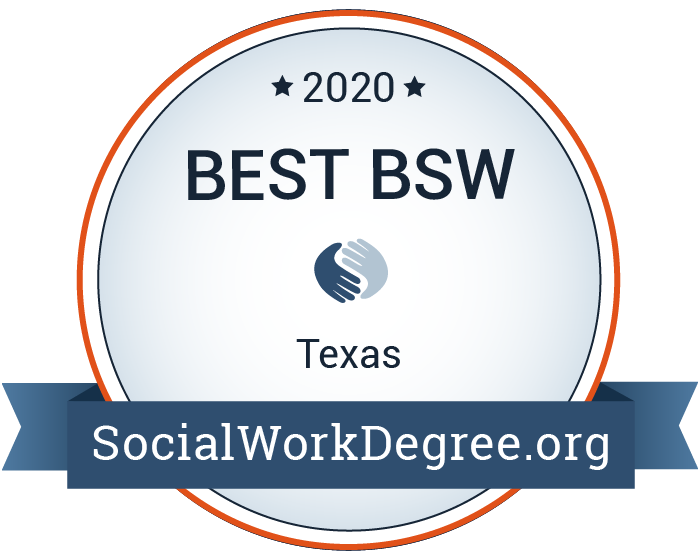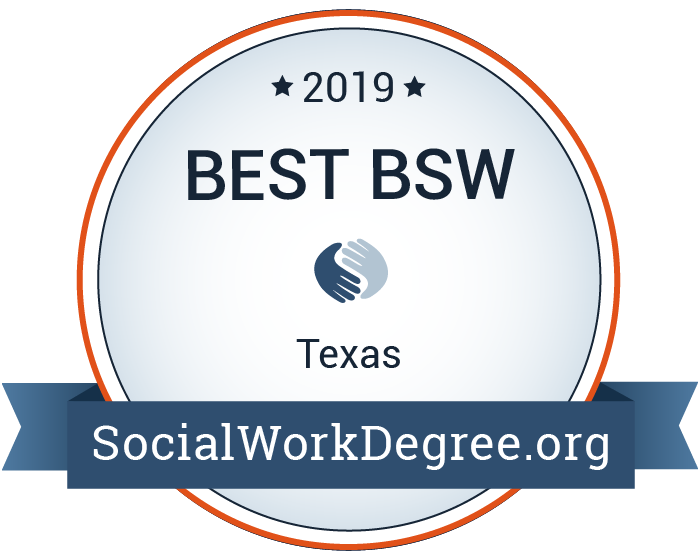Social Work - An Introduction
If you're looking for a career with meaning, action, diversity, satisfaction, and an abundance of options, we invite you to consider social work! Social workers are people who care about people, who want to make things better, who want to relieve suffering, and who want their work to make a difference. Social work is a profession devoted to helping people function well in their environment. This may be accomplished through provision of direct services or through direct therapy with individuals. It may also include working to improve social conditions. The phrase "in their environment" points to a distinguishing characteristic of social work, one that sets it apart from other helping professions. Social workers help people deal not only with how they feel about their situation, but also what they can do about it.
About the Profession
The social work profession has its own body of knowledge, code of ethics, practice standards, credentials, state licensing, and nationwide system of accredited education programs. These equip the professional social worker to combine the desire to help others with the knowledge, skill, and ethics needed to provide that help. For sheer variety, few occupations can match social work in terms of the broad range of opportunities and settings it offers. Social workers are found in public agencies, private businesses, hospitals, clinics, schools, nursing homes, private practices, police departments, courts, and countless other interesting workplaces. Social workers serve individuals, families, and communities. They are managers, supervisors, and administrators, as well as elected political leaders.
Educational Requirements
To be a social worker, one must have a degree in social work from a college or a university program accredited by the Council on Social Work Education (CSWE). MSU holds such accreditation. Degree programs include classroom study as well as practical field experience. The undergraduate degree, Bachelor of Social Work (BSW), prepares graduates for entry level work. The Master of Social Work (MSW) degree prepares graduates for more advanced practice and is required for providing therapy. Both the Doctorate of Social Work (DSW) and Ph.D. degrees are useful for conducting research and for teaching at the university level. Presently, MSU offers the BSW degree.
Potential Employers
- Adoption Agencies
- Counseling Centers
- Early Intervention Programs
- Elementary and Secondary Schools
- Employee Assistance Programs
- Hospitals, Medical Centers
- Nursing Homes
- Prisons
- Private Social Service Agency
- Special Education
The Department of Social Work at MSU is accredited by the Council on Social Work Education-Board of Accreditation (CSWE-BOA). CSWE-BOA voted to reaffirm the accreditation of the program for eight (8) years which ends in June 2031.
To become a practicing Licensed Bachelor Social Worker (LBSW) you must:
- Apply with the Association of Social Work Boards (ASWB) to take the national exam and:
- Provide an official transcript showing a baccalaureate degree in social work from a program accredited by the Council on Social Work Education (CSWE) that included a practicum as part of the degree requirements.
-OR-
-
- Provide a dean’s letter in a sealed envelope or sent electronically from the school stating that you are in the last semester of actively completing a CSWE accredited BSW program.
- Apply with the Behavioral Health Executive Council (BHEC) after exam passage to receive the license. This requires:
- An official transcript showing a baccalaureate degree in social work from a CSWW accredited program
- Proof of passing of the Bachelors examination administered by the Association of Social Work Boards
- A passing score on the jurisprudence examination
- A self-query request from the National Practitioner Data Bank (NPDB)
- A request for fingerprinting for a background check upon submission of your online application.
For further information about applying for a License through the Behavioral Health Executive Council, please visit the BHEC website.
For further information about applying to take the ASWB Exam, please visit the ASWB website.
For further information about taking the Jurisprudence Examination, please visit the BHEC Jurisprudence Examination webpage.
For further information about a NPDB self-query report, please visit NPDB website.
The DOE legislation including 34 CFR 668.43 (a) (5) (v) and 34 CFR 668.43 (c) requires disclosures by institutions regarding educational requirements for programs leading to professional licensure or certification regardless of modality. 34 CFR 668.43(a)(5)(v) requires an institution to make readily available to enrolled and prospective students whether programs leading to professional licensure or certification meet educational requirements. The regulation requires the following:
- A list of all States for which the institution has determined that its curriculum meets the State educational requirements for licensure or certification;
- A list of all States for which the institution has determined that its curriculum does not meet the State educational requirements for licensure or certification; and
- A list of all States for which the institution has not made a determination that its curriculum meets the State educational requirements for licensure or certification
To that end, Midwestern State University has determined that our Social Work program curriculum meets the state educational requirements for licensure or certification in the following states: All states.
Midwestern State University has determined that our Social Work program curriculum does not meet the state educational requirements for licensure or certification in the following states: None, except the states listed below requires post-degree supervised experience.
Midwestern State University has not yet made a determination that our Social Work program curriculum meets the state educational requirements for licensure or certification in the following states: None.
Which states have determined that our curriculum meets the State educational requirements for licensure or certification;
- All states
Which states have determined that our curriculum does not meet the State educational requirements for licensure or certification;
- All states accept the curriculum. However, in the following states, in addition to a BSW degree, candidates are required to have the post-degree supervised experience (additional requirement) to sit for the LBSW examination.
|
Sl. No. |
Name of State |
Supervised Experience (post-degree hours/years) |
|
1 |
Illinois |
3 years |
|
2 |
Michigan |
4,000 hours |
|
3 |
Missouri |
3,000 hours |
|
4 |
Montana |
2,000 hours |
|
5 |
Northern Mariana Islands |
3,500 |
|
6 |
Virginia |
3,000 hours |
Which states have not made a determination that our curriculum meets the State educational requirements for licensure or certification;
- None


